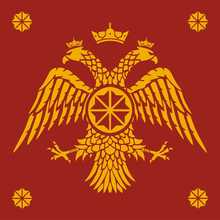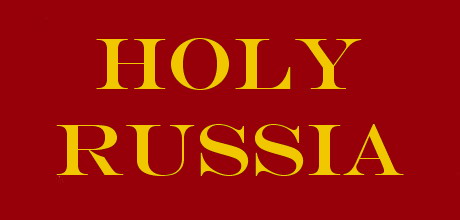In May–June 2022, Grand Prince Pr. Dr. Valeriy Viktorovich Kubarev is in Istanbul on a pilgrimage visit to the Holy Places of the ancient capital of the Christian world. During the trip, he visited the Temple Hagia Sophia, the Hippodrome, the Patriarchate, Christ's tower in Galata, Mount Golgotha (Beykoz) and the Yoros fortress with the ruins of the Temple Nike of Jesus Christ. In ancient times, New Rome, according to the truth and historical realities, as well as the author's reconstruction of the history of religions, aka Constantinople or Tsargrad, for many centuries was the true Jerusalem of Christianity. The Churches and Temples of New Rome were filled with authentic relics of the Old and New Testaments. In 1204, the crusaders of the Fourth Crusade plundered the shrines and relics of Constantinople, only a small part of the artifacts, hidden or taken away by the locals, survived. In 1453, the troops of the Ottoman Sultan Mehmed II captured Constantinople, stopping the Christian development of the pearl of the Mediterranean. Since then, many monuments and artifacts of the city have fallen into decay, if not completely disappeared from the face of the earth. The true history and meaning of Christian buildings and relics was distorted beyond recognition, hiding the Biblical history of New Rome. During the visit, the Grand Prince Pr. Dr. Valeriy Viktorovich Kubarev visited the Temple of Hagia Sophia, specially erected by Christians of the Old Testament period (theoretical Christianity), as the greatest symbol of wisdom and prediction of the future – the fulfillment of divine will in the light of the appearance on Earth of the Savior born immaculately. Now the Temple has been turned into a Mosque and numerous Christian mosaics are hidden from the eyes of visitors to the monument. Next to the Temple of Hagia Sophia is the Hippodrome, erected in the 390s by Emperor Theodosius the Great, the true Leader Moses (Dux Moesiae). At the Hippodrome, the true artifacts of the Exodus have been preserved – the Obelisk of Pharaoh Thutmose III and the Serpent Column made of copper. Theodosius the Great established chariot races in the arena in honor of the salvation of Israelite refugees from the persecution of the Pharaoh's chariots. Not far from the center of Constantinople is the Patriarchy, where the column of scourging of Jesus Christ has been preserved in the Church of St. George. The interrogation of the Savior took place in the Church of All Saints, later renamed the Church of the Holy Apostles, which has not survived to our times. On the other side of the Golden Horn is Galata, where in ancient times there was a huge garden of fruit trees. On the outskirts of the garden, the Genoese built the Tower of Christ, which has come down to our time. According to the author's reconstruction, the tower was built on the site of the last prayer of Jesus Christ after the Last Supper. On the other side of the Bosporus (Propontis in ancient times) is Mount Beykoz – the highest point of the city. In the past, this mountain was called the Head of Adam, the Bed of Hercules and Golgotha. This territory was called Pontus Galaticus or Propontis Galata. Now there is a sanctuary of St. Yusa Kabri, who is worshiped by Muslims (the direction of Sufism). According to the author's reconstruction and truth, this is the place of the crucifixion of Jesus Christ and his removal from the cross. The Holy Land is surrounded by a fence measuring 2 by 17 meters. In the corner of the plot stands a stone pillar with a square hole for a cross. It has a Spear of Doom made of painted metal stuck into it. A few years ago, the spear adorned the point with inscriptions in Arabic. Now the gilded spearhead is gone. Three kilometers from Mount Beykoz along the Bosporus is the Yoros fortress – true Jerusalem or sacred land. Earlier, in the middle of the XI century, the Genoese built a fortress with the same name here. The fortress was adorned with the Church of Nike of Jesus Christ with a huge cross towering over the Bosporus. This temple and the cross were seen by all the ships passing through the Bosporus. According to the author's reconstruction of the story, one of the towers of the fortress on the top of the mountain guarded the true Holy Sepulcher – Empty Tomb, where the Savior was until his resurrection. According to true historical facts and astronomical phenomena, the events of the Passion of Christ took place on March 18, 1010, and the resurrection took place exactly on the day of the spring equinox, March 20, 1010. The moment of the crucifixion was accompanied by an annular solar eclipse, which began over the Atlantic at about 12 noon and ended after 18 o’clock. The maximum phase of the eclipse, visible in Constantinople, fell on the moment the Sun touched the horizon at sunset. This eclipse is a unique natural phenomenon whose signature has formed only once in 5,000 years of NASA solar eclipse calculations. Below is a photo report on the visit of the Grand Prince Pr. Dr. Valeriy Viktorovich Kubarev to the Holy Places of Constantinople. The first photo is a reconstruction of the Hippodrome in antiquity. The photographs were taken against the background of the Hagia Sophia, the view of the Temple across the Golden Horn from the port of Galata, the layout of the Holy Places of New Rome, the Tower of Christ, the entrance to the sanctuary of Yusa Kabri (Jesus Kubar), the place of the crucifixion, the view of the Sanctuary from the Bosporus, the entrance on the ruins of the Yoros fortress and the Church of Nike Jesus Christ, view of the ruins from inside the fortress, photo inside the tower above the true Holy Sepulcher, view of the third bridge of Istanbul from the Yoros fortress and view of the Bosporus and the Golden Horn (left).
|












